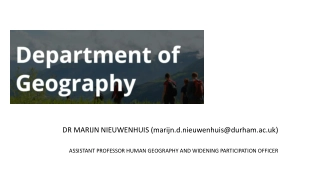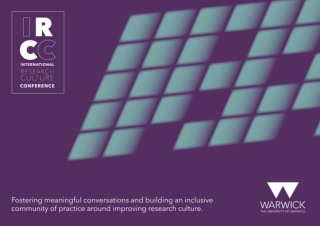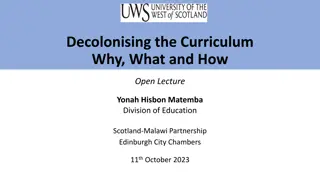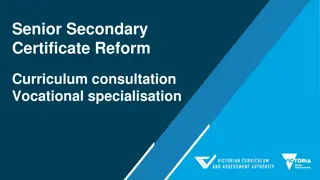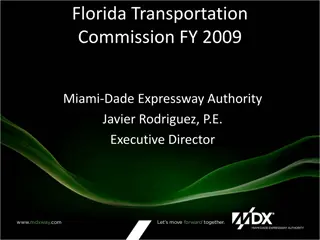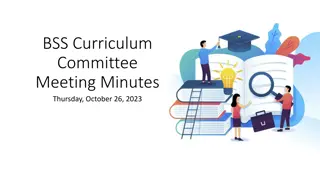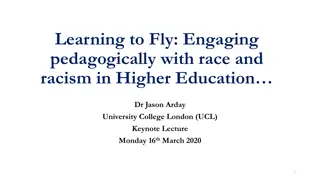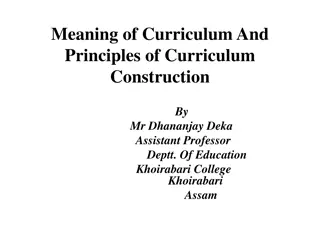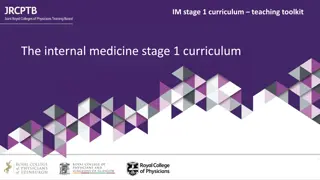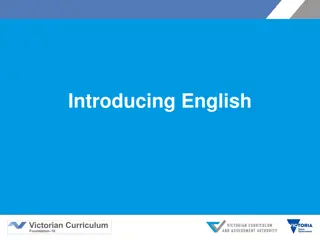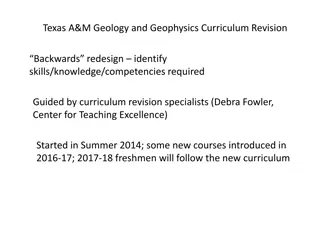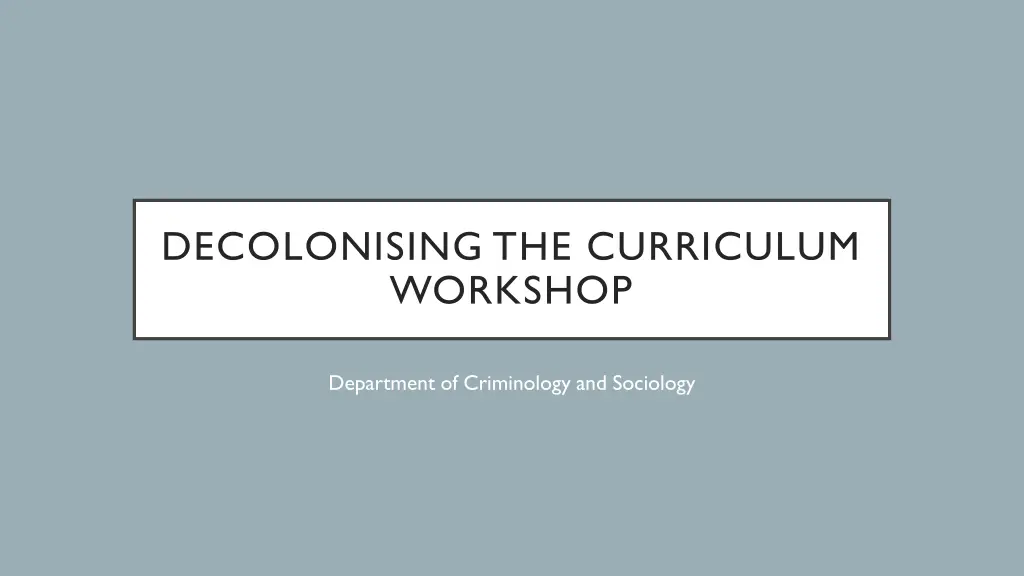
Decolonising the Curriculum in Criminology and Sociology: Representation and Diversity Considerations
Explore the importance of representation, diversity, and decolonisation in the academic curriculum of Criminology and Sociology. Consider various levels - module, programme, and departmental - to ensure inclusivity, fair workload distribution, and a global perspective in teaching and decision-making processes.
Uploaded on | 1 Views
Download Presentation

Please find below an Image/Link to download the presentation.
The content on the website is provided AS IS for your information and personal use only. It may not be sold, licensed, or shared on other websites without obtaining consent from the author. If you encounter any issues during the download, it is possible that the publisher has removed the file from their server.
You are allowed to download the files provided on this website for personal or commercial use, subject to the condition that they are used lawfully. All files are the property of their respective owners.
The content on the website is provided AS IS for your information and personal use only. It may not be sold, licensed, or shared on other websites without obtaining consent from the author.
E N D
Presentation Transcript
DECOLONISING THE CURRICULUM WORKSHOP Department of Criminology and Sociology
MODULE LEVEL CONSIDERATIONS: REPRESENTATION Do you have ethnic minority members of staff (UK or international) across your teaching team (module leader, lecturer, professor, guest lecturers, seminar leader, GAA, SLA, internal moderator, external examiner, placement providers)? Do you ensure that there is a proportionate distribution of workload (pastoral and otherwise) across the ethnic minority and non-ethnic minority members of your teaching team? Do you have representation from non-White scholars, and scholars from the Global south, on your reading lists and in your module content?
MODULE LEVEL CONSIDERATIONS Do you explore and deconstruct the origins and boundaries of your discipline re. the implicit or explicit inclusion and exclusion of certain voices, standpoints and knowledges? Do you incorporate / acknowledge complex and intersectional identities and experiences where relevant in your teaching? Do you allow your students to explore how their identity and histories can impact the discipline and bears on our collective understanding of key issues in the discipline? Do you do the above in a way that encourages compassion and openness? Do you avoid negatively stereotyping certain marginalised identities? Do you draw on a sufficient number of examples, case studies, scholarship, data and / or theory from outside the UK, particularly from the Global south?
PROGRAMME LEVEL CONSIDERATIONS Do you provide information at induction time, on the programme pages on MyLearning specific and / or via email to students of diverse backgrounds? I.e. disability support, location of prayer rooms, different societies and liberation groups, information about Pride and Black and History Month activities? Does course and assessment design include input from students from a range of backgrounds? Do we connect with schools and colleges with significant ethnic minority populations? Do we stress that our programme is / is working to prepare students for working in a diverse world? Does the practical (e.g. methodological) as well as theoretical training we give our students incorporate decolonial perspectives?
DEPARTMENTAL CONSIDERATIONS Do you incorporate ethnic minority members of staff (internally and externally) in department-level decision making activities (REF, internal panels, research centres and clusters, curriculum development)? Do we have an understanding of the cultural and logistical barriers to those engaging in decolonial work? Do colleagues feel able to talk explicitly about issues like race? What do we need to do to feel that colleagues have the time and support to develop their understanding in these areas? Do we reflect on how this work can / should impact our own research? Do we have accurate and up-to-date data on the awarding gap and the belonging gap by ethnicity for all our student cohorts?
DECOLONIAL PEDAGOGY: BEST PRACTICE
MODULE CONTENT: RESEARCH METHODS SOC1277 (Measuring Social inequalities) embeds the teaching of Microsoft Excel analysis of social survey data within the study of social inequality. Series of lectures on racial and intersectionality inequality, with one integrating QuantCrit (quantitative critical research, combining Qt methods and CRT to highlight the worth of statistical data in challenging oppression, but also the non-neutrality of statistical data) Series of lectures in SOC1273 (Exploring Inequality Qualitatively) interrogating (i) the history of knowledge production from decolonial and intersectional standpoints (ii) encouraging reflexive thought and (iii) challenging disciplinary boundaries: Ex. Week 19: Whose knowledge counts? Colonisation and decolonisation of knowledge Ex. Week 20: Whose knowledge counts? Problematising the category of woman , intersectionalities and the awkward etc. Ex. Week 21: Who am I and where do I fit? Thinking ethically and reflexively Ex. Week 24: Interdisciplinarity and Sociology do disciplinary boundaries matter in qualitative research?



